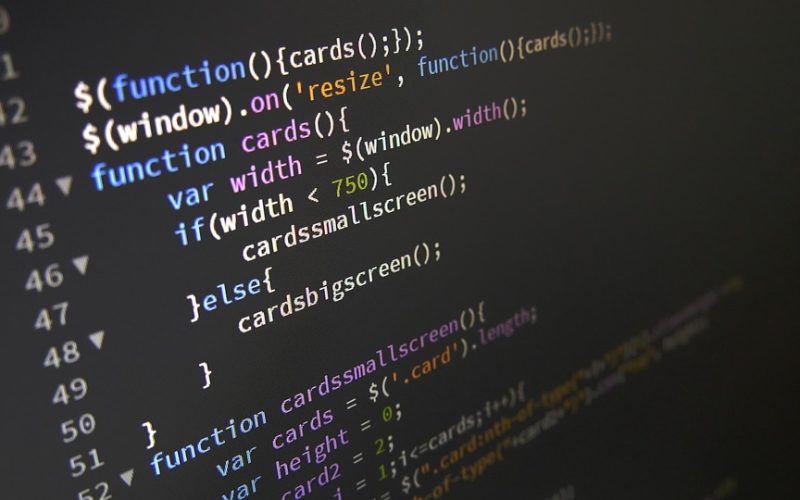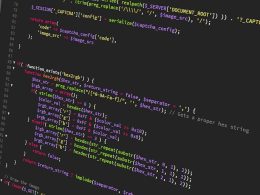1. Always Declare Variables
One of the most common mistakes in JavaScript coding is not declaring variables before using them. This can lead to unexpected behavior and difficult-to-debug errors. The best practice is to declare all variables at the beginning of your code or function using let or const keywords.
“`javascript
let name = ‘John’;
const age = 25;
“`
2. Use Strict Mode
Using strict mode in JavaScript helps you write code that is more secure and less prone to errors. It enforces stricter syntax rules, warns you if you use any undeclared variables, and prevents you from using duplicate parameters in functions.
To enable strict mode in JavaScript, add a string `”use strict”;` at the beginning of your code.
“`javascript
“use strict”;
let name = ‘John’;
“`
3. Use Comments
Comments help you explain your code’s intent, making it easier to read, understand, and maintain. Therefore, make it a habit to add comments to your code, explaining what each section does.
“`javascript
// This function returns the sum of two numbers
function add(a, b) {
return a + b;
}
“`
4. Avoid Global Variables
In JavaScript, declaring variables outside of functions creates a global variable that can be accessed from anywhere in your code. Global variables can cause unexpected behavior and make it harder to identify which part of the code changes them.
“`javascript
// Avoid declaring global variables
let globalVariable = 5;
function add(a, b) {
// Instead, declare variables inside functions using let or const
let result = a + b;
return result;
}
“`
5. Use Operators and Functions Properly
JavaScript has a wide range of operators and functions that you can use to write code in many different ways. However, it’s important to choose the right operator or function based on their purpose. Using the wrong one can result in unexpected behavior or errors.
“`javascript
// Use the + operator for concatenating strings
let firstName = ‘John’;
let lastName = ‘Doe’;
let fullName = firstName + ‘ ‘ + lastName;
// Use the parseInt() function for converting a string to an integer
let num = ’10’;
let integer = parseInt(num);
“`
6. Use Conditional Statements
Conditional statements help you execute code based on certain conditions. They are essential for creating logic in your code, controlling the flow of execution, and making your code more dynamic.
“`javascript
// Use if-else statements for creating conditional logic
let num = 10;
if (num > 0) {
console.log(‘Positive number’);
} else if (num < 0) {
console.log('Negative number');
} else {
console.log('Zero');
}
```
7. Use Loops
Loops are essential for iterating over arrays or other objects and executing the same code multiple times. They can help you reduce code complexity and make your code more efficient.
```javascript
// Use for loops for iterating over arrays
let numbers = [1, 2, 3, 4, 5];
for (let i = 0; i < numbers.length; i++) {
console.log(numbers[i]);
}
// Use forEach() for Iterating over arrays
numbers.forEach(function(number) {
console.log(number);
});
```
8. Use Object-Oriented Programming
Object-oriented programming (OOP) is a powerful paradigm for writing scalable and maintainable JavaScript code. By creating objects that encapsulate data and behavior, you can write modular and reusable code that handles complex tasks.
```javascript
// Use OOP principles for creating objects
class Person {
constructor(name, age) {
this.name = name;
this.age = age;
}
introduce() {
console.log(`My name is ${this.name}, and I'm ${this.age} years old.`);
}
}
let john = new Person('John', 25);
john.introduce();
```
9. Use Error Handling
Error handling is essential for writing robust and reliable JavaScript code. It helps you catch errors and exceptions, prevent your code from crashing, and provide useful feedback to users.
```javascript
// Use try-catch blocks for error handling
try {
let result = 1 / 0;
console.log(result);
} catch (error) {
console.log(error.message);
}
```
10. Use Libraries and Frameworks
The JavaScript ecosystem is vast and diverse, with many libraries and frameworks that can help you write code more efficiently and effectively. Using them can help you save time, reduce complexity, and improve the quality of your code.
```javascript
// Use libraries and frameworks to simplify your code
// For example, using jQuery to manipulate the DOM
$('h1').text('Hello World');
// Or using React to create modular and reusable components
class Welcome extends React.Component {
render() {
return
Hello, {this.props.name}
;
}
}
ReactDOM.render(
document.getElementById(‘root’)
)
“`
In conclusion, these ten tips can help you write effective and efficient JavaScript code, enabling you to create dynamic and interactive web applications that provide great user experience. By following them, you can ensure that your code is readable, maintainable, and extensible, delivering real value to users and stakeholders.










